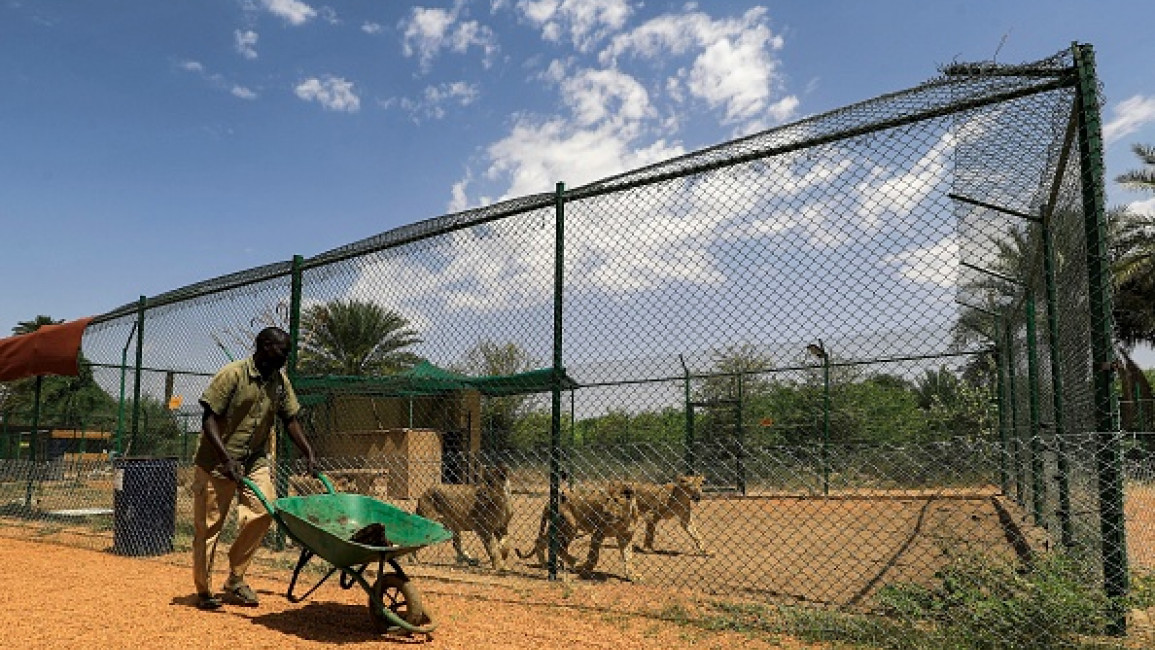Sudan animals in danger as crisis cuts water and power
Sudan's animal rescue centres and zoos are in danger as intense fighting in the capital sees water and power cuts, with animals escaping their pens.
Khartoum's Animal Rescue Centre has 25 lions, six hyenas, two camels, five squirrels as well as several monkeys, turtles and dogs that all need regular care.
The sanctuary said animals could starve as workers struggle to find supplies.
"We face extreme risks on a daily basis to perform our duties because the sanctuary is located near one of the military bases that witnesses deadly clashes on a daily basis," said the centre on Sunday.
"Our stocks of food and drink are beginning to run out… goods and materials are becoming scarce and markets have dried up."
🔴 تحديات كتيرة 🤕
— Sudan Animal Rescue حديقة السودان للحياة البرية (@SudAnimalRescue) April 23, 2023
درجة الحرارة 45⁰c سخانة شديدة و اكبر مشكلة عندنا الموية و الكهرباء. كل الشغل باليد.https://t.co/7MdGRcFmr6 pic.twitter.com/LKWxIRSk15
One lion cub has been born in the midst of the fighting at the centre with a lack of power meaning that electrified fences separating dangerous animals are not currently working.
With temperatures rising to 45 degrees, workers and volunteers at the centre are taking water by hand, distributing food, and water to the animals.
Rapid Support Forces militiamen have, according to Sudan Animal Rescue, even stolen the centre’s Toyota Hilux from the centre.
مستمرون في تأمين الأكل و الرعاية لي الحيوانات وأداء مهامنا.
— Sudan Animal Rescue حديقة السودان للحياة البرية (@SudAnimalRescue) April 19, 2023
٢٨ رمضان | ١٩ أبريل #لا_للحرب pic.twitter.com/VVDS2k7kKY
Artillery shells have also fallen inside the enclosures, allowing animals to escape into the surrounding neighbourhood.
Thankfully for local residents, the areas for lions and hyenas remain intact - for now.
The eruption of fighting eight days ago between the army and Rapid Support Forces (RSF) paramilitary group has killed hundreds of civilians and trapped many thousands in their homes.
Citizens are increasingly being forced to risk fighting on the streets to flee to surrounding regions and neighbouring countries.
But for many - including those who care for the animals in Khartoum’s rescue centre - leaving is not an option.



